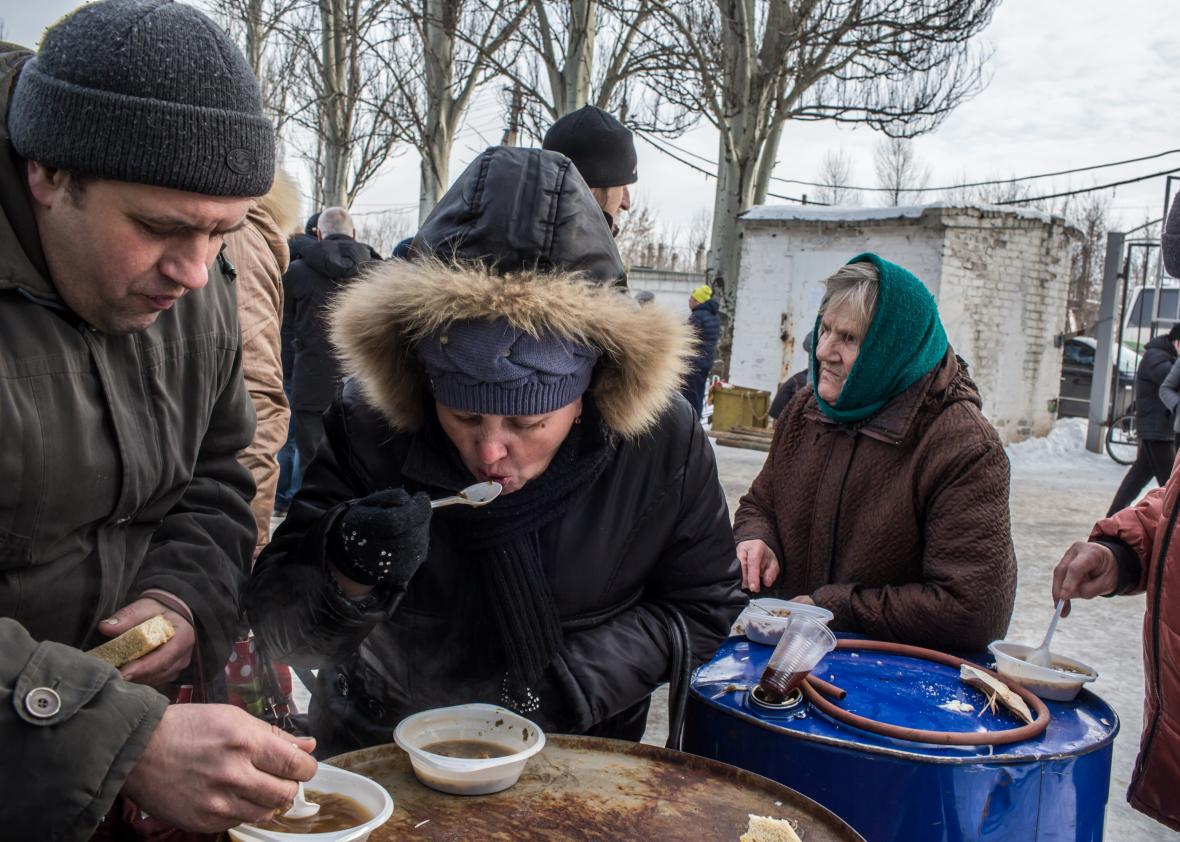Renewed fighting between Ukrainian forces and Russian-backed separatist rebels has been raging since last weekend around the town of Avdiivka, a violation of the peace deal that has held, with sporadic violations, for the past two years. At least 10 people have been killed, dozens wounded, and thousands are in need of humanitarian assistance in subzero temperatures. Each side blames the other for restarting the fighting, which is normal, but the difference this time is that no one is really sure how the United States will respond.
Under Barack Obama, the U.S. backed Kiev in the conflict and sanctioned Russia for the annexation of Crimea and for supporting the separatists in Eastern Ukraine. (Russia denies supporting them.) The new violence comes amid speculation that President Donald Trump, whose ties to Russia have been, shall we say, closely scrutinized, is planning to lift those sanctions. The fighting seems like a sign of Russia testing to see what it can get away with under the new administration. Though the Ukrainian government also has an incentive to play up the violence as evidence of why the sanctions should not be lifted.
The White House has declined to comment on the situation, and the State Department has put out only a neutral statement of concern that breaks with past practice by not making note of Russian support for the separatists or even mentioning Russia at all.
Not everyone in the department is so reticent, though. Kate Byrnes of the U.S. mission to the Organization for Security and Cooperation in Europe, the multinational organization tasked with monitoring breaches of the peace deal in Ukraine, Tuesday blamed the fighting on “a combined Russian-separatist assault” and called on “Russia to stop the violence, honor the ceasefire, withdraw heavy weapons, and end attempts to seize new territory.”
As the Guardian notes, the mission to the OSCE, is “staffed by career diplomats and may be out of step with the new mood in Washington.” But the State Department statement and Byrnes’ read less like the reactions of different departments than different countries.
We may get some more clarity on the official position now that Secretary of State Rex Tillerson has been officially confirmed. But along with the widespread pushback among U.S. diplomats to Trump’s Muslim travel ban, it appears that the divide between career diplomats and their bosses back in Washington is growing.
